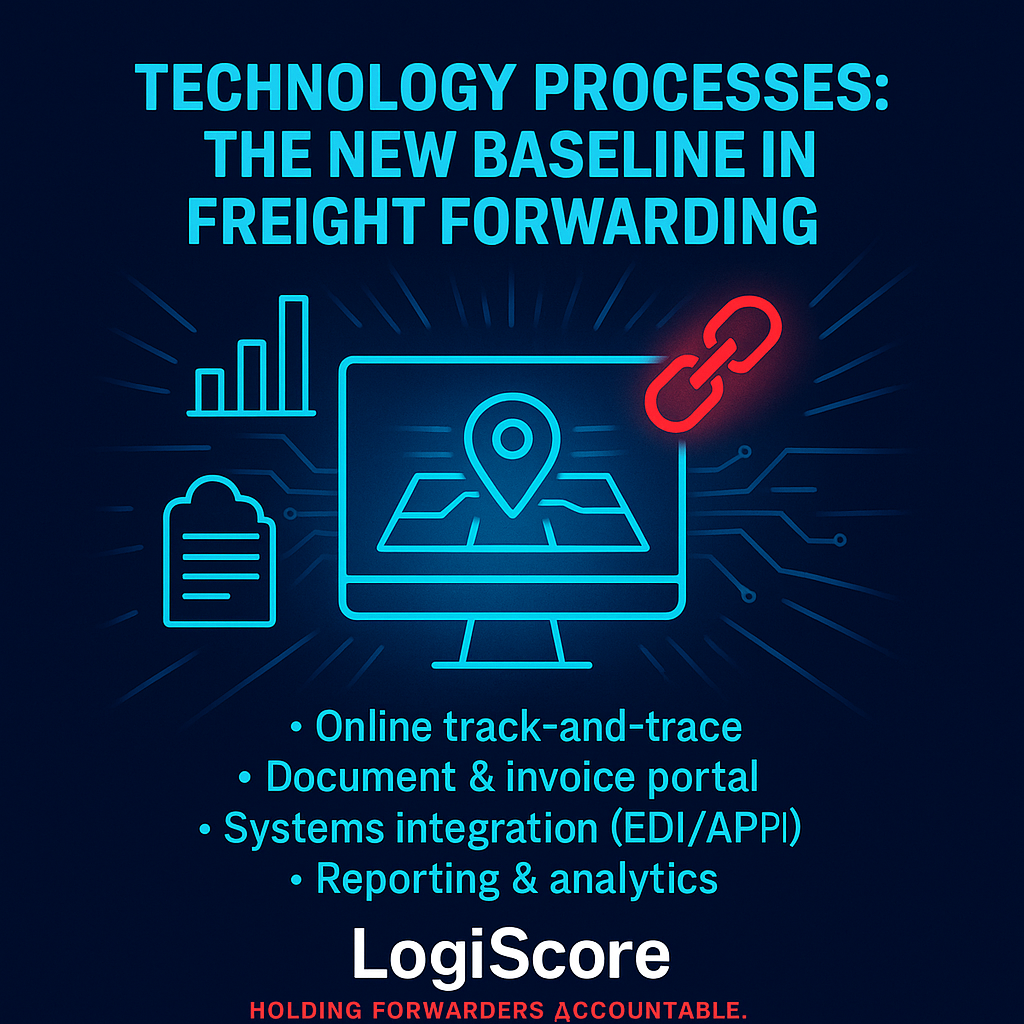Driving Trust Through Technology in Freight Forwarding

In today’s hyper-competitive logistics landscape, technology is no longer a differentiator—it is a baseline expectation. Shippers demand visibility, accuracy, and integration, and forwarders that cannot meet these standards risk being sidelined. According to a McKinsey & Company report, digital adoption in logistics has accelerated by more than five years since the COVID-19 pandemic, with track-and-trace systems now considered essential rather than optional.
Key Technology Processes That Matter
- Online Track-and-Trace
Shippers expect real-time shipment visibility. Deloitte’s 2023 Global Supply Chain Survey found that 79% of supply chain leaders rank end-to-end visibility as a top priority. Failure to provide online tracking erodes trust and increases customer service costs. - Document & Invoice Portals
An online portal for shipment documents and billing reduces administrative bottlenecks, eliminates version errors, and accelerates dispute resolution. Gartner highlights that companies with automated documentation processes see a 30% reduction in billing disputes. - Systems Integration (EDI/API)
In an era of API-driven ecosystems, forwarders must be able to connect directly to their customers’ systems. According to Accenture, shippers that adopt integrated EDI/API solutions report 15–20% faster cycle times and fewer manual errors. - Reporting & Analytics
Regular reporting—weekly shipment summaries, KPI dashboards, or exception reports—has shifted from being a “value-add” to a non-negotiable standard. Shippers increasingly benchmark forwarders on the timeliness and accuracy of their reporting, using it as a measure of operational maturity.
Why It Matters
LogiScore emphasizes that forwarders are now judged not just by performance, but by transparency and accessibility of data. Technology processes underpin trust: they ensure accountability, reduce friction, and provide shippers with the control they demand.
Forwarders that fail to offer these capabilities risk exclusion from RFPs and long-term contracts. By contrast, those that invest in robust digital processes position themselves as partners of choice in a data-driven supply chain.
✅ Industry References:
- McKinsey & Company (2021). How COVID-19 has pushed companies over the technology tipping point.
- Deloitte (2023). Global Supply Chain Survey.
- Gartner (2022). The State of Supply Chain Digitalization.
- Accenture (2022). Supply Chain Resilience through API Integration.
Leave a Reply
You must be logged in to post a comment.